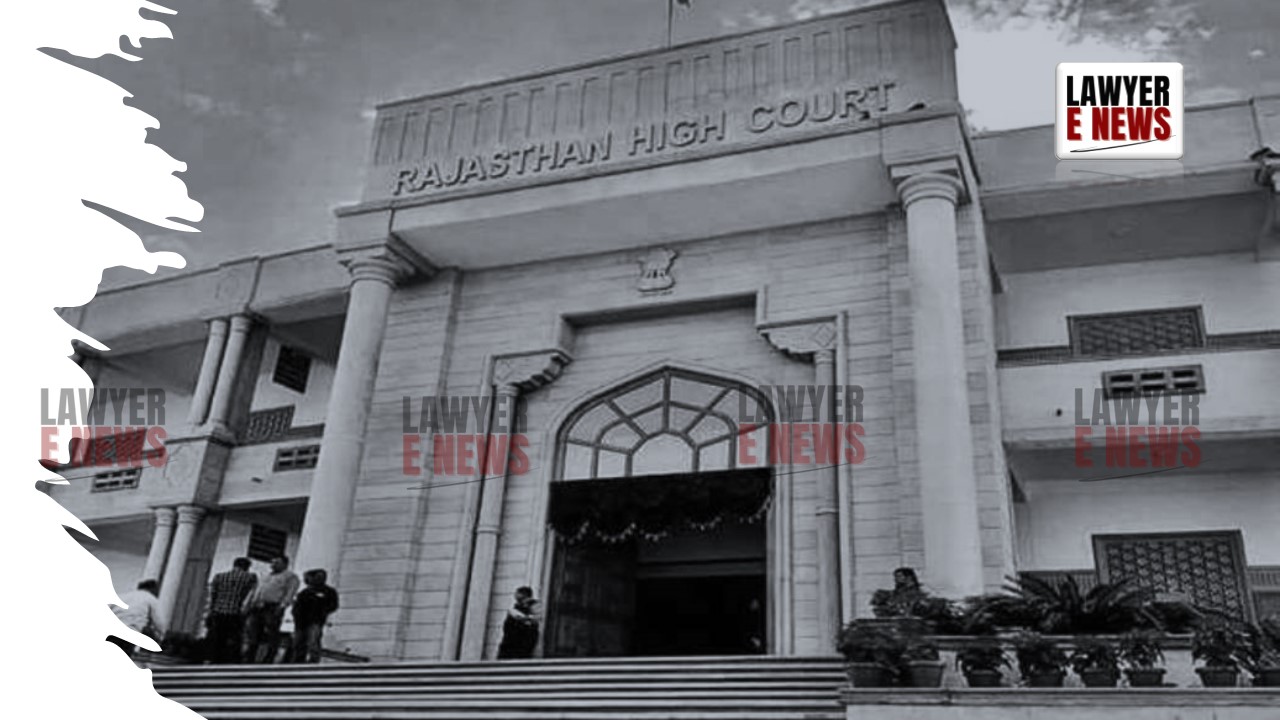-
by Admin
15 February 2026 2:36 AM



Rajasthan High Court delivered a pivotal ruling in Dana Ram v. State of Rajasthan, addressing the denial of a government appointment based on a pending criminal case. Justice Vinit Kumar Mathur ruled that the petitioner’s involvement in a criminal matter does not by itself disqualify him from being appointed to the Rajasthan State Services. The Court emphasized that each case must be examined on its own merits, particularly to determine whether the allegations involve moral turpitude. This decision underscores the importance of not applying disqualifications mechanically when considering criminal charges against government job applicants.
Dana Ram, the petitioner, applied for a position through the Rajasthan State and Subordinate Service Examination following an advertisement released in July 2021. Having successfully cleared the preliminary and main exams, as well as an interview in July 2023, he was recommended by the Rajasthan Public Service Commission (RPSC) for appointment with a merit rank of 1650.
However, prior to the announcement of the results, an FIR was registered against him under Sections 498A, 323, and 34 of the Indian Penal Code (IPC) concerning a matrimonial dispute with his wife. A charge sheet was filed in November 2020. On these grounds, the State of Rajasthan withheld his appointment, prompting Dana Ram to file a writ petition challenging the denial.
The principal question was whether the mere pendency of a criminal case, particularly one related to matrimonial discord, could justify the denial of appointment. The case also touched on the application of a December 4, 2019, circular issued by the State Government, which outlines how candidates facing criminal charges should be assessed for government appointments.
Justice Mathur stressed that the criminal charges against Dana Ram must be examined in detail, particularly to assess whether they constituted acts of moral turpitude. The Court observed that the circular of December 2019 requires a meticulous examination of the facts surrounding each case before making a decision regarding an applicant's character.
The Court rejected the State’s argument that the petitioner was automatically disqualified due to the charges under Section 498A (related to dowry harassment). It noted that the authorities had not undertaken a thorough review of the charge sheet to determine whether the allegations truly involved moral turpitude, as required by the circular.
"The involvement in a crime does not, without more, disqualify a candidate; the State must carefully analyze whether the acts alleged reflect moral depravity or will affect the candidate's ability to perform official duties."
The Court pointed out that the circular provides guidelines for evaluating whether a candidate is fit for government service based on their criminal involvement. The circular explicitly states that even a conviction need not necessarily disqualify a candidate unless it involves moral turpitude, violence, or an attempt to overthrow the government by force.
Justice Mathur emphasized that the respondents failed to properly assess whether the petitioner’s actions, as outlined in the charge sheet, involved moral turpitude. Instead, they applied the circular mechanically, disqualifying the petitioner merely because he was charge-sheeted. The Court made it clear that this approach was not legally tenable and that the authorities are obligated to scrutinize each case individually before deciding on disqualification.
The High Court allowed the writ petition, directing the State of Rajasthan to reevaluate Dana Ram’s case in light of the 2019 circular. The Court ordered the respondents to conduct a detailed assessment of the criminal charges and determine if they involve moral turpitude. If not, the petitioner should be considered for appointment as recommended by the RPSC.
This judgment reiterates that criminal charges alone do not disqualify candidates from government service, unless the allegations involve serious moral violations. The ruling is a critical reminder to authorities to apply the law with discretion and diligence.
Date of Decision: September 24, 2024
Dana Ram v. State of Rajasthan.
